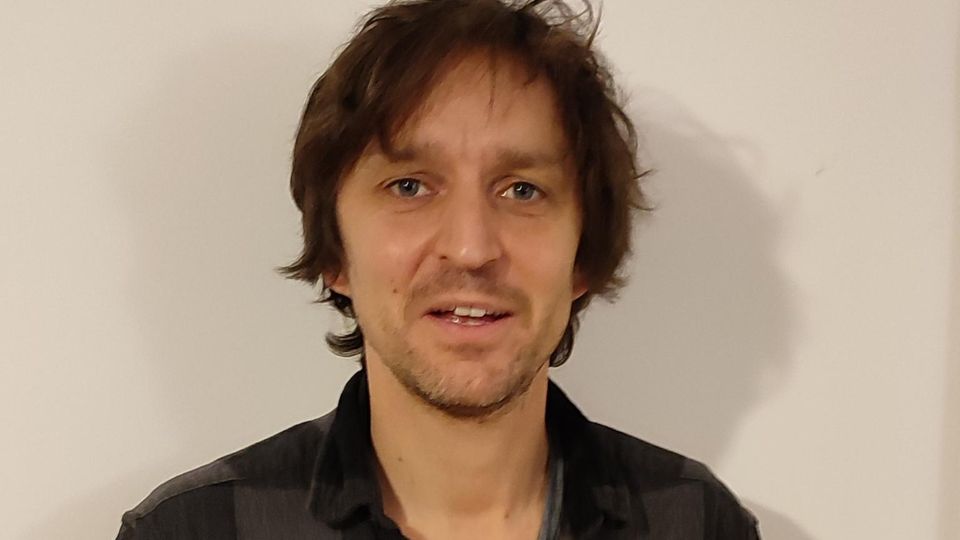Life means change. This applies not only to the general conditions, but also to our personality. How do we get to know each other anyway? Personality researcher Michael Dufner takes us into the depths of our identity.
What really sets me apart? A question that each of us has certainly asked ourselves at some point. It’s not uncommon for us to end up taking personality tests at some point in our search for answers. However, they don’t always make sense, like personality psychologists Michael Dufner explained in an interview with the star.
But how do we get to the bottom of our personality? And can we really become a different person through personal development? These are questions that Dufner addresses. He took us on a journey through the peculiarities of our identity.
Climate crisis, war or conflicts in the family – each of us deals with the current situation differently, we clash with our lifestyles, even though we are often in the same boat. Why are we so different, Mr. Dufner?
One factor is genetics. There are a number of studies on this, particularly twin studies. Similarities were found in twins who grew up differently. That is why it is now assumed that around half of our personality traits are hereditary. Our socialization also plays a role – i.e. all the individual experiences we have over the course of our lives.
26 images
How does our personality develop over the course of our lives?
You could say we continue to evolve throughout our lives. There is a stabilization in middle adulthood. This is because living conditions are generally relatively stable during this time. However, there are very big changes in childhood and very old adulthood.
Why do we change even more as we get older?
There are two theories that are being discussed. One is life circumstances, which can change significantly, for example due to the death of a partner or a serious illness. When circumstances change significantly, there is usually a change in personality. The other Approach are physical degradation processes – i.e. causes in the brain.
How our personality changes through crises
They say drastic life events change our personality. Is this then some kind of adaptation effect?
Intuitively, one could say that positive and negative life events have a predictable impact on people. A job loss is negative, a birth is positive – and that’s how they affect us. Researchers have seen it that way for a long time. Today we know that the same event can have very different effects. to have a child, For example, it is not equally good for everyone. On the other hand, some people manage to turn a negative event into a positive development.

Professor Dr. Michael Dufner is a psychological psychotherapist and teaches in the field of personality psychology at the University of Witten/Herdecke. In his research, he primarily focuses on the diverse effects of our personality on our social behavior, the peculiarities of the narcissistic personality and the art of self-reflection.
© Michael Dufner (private)
The keyword resilience comes to mind…
Exactly. This is our psychological resilience. It is individual and crucial for how we deal with crises and whether we manage to grow from negative events. In terms of personality development, we also see a trend towards greater emotional stability, conscientiousness and tolerability as we get older. However, this effect can also occur after difficult life events.
So in the end we’re not so different after all?
Every person is individual, and that’s a good thing. We have differences and variability and we also need them for society. How clearly these appear depends primarily on the living conditions. An example: During the pandemic, people had onepronounced Extraversion rather difficult because they were not able to live them out to the fullest extent. In other situations, however, it helps extraverted to be.
Many people desire traits like extraversion and try to acquire them. Is that even possible?
The topic of personality development in adulthood has only been on the scientific agenda for about 20 years. Until then, it was thought that personality was set in stone by the age of 30. Certainly a certain factor also plays a role change Age plays a role – a young dog is also significantly more excited than an older one. But also life events like that birth of a child or a new role at work shapes us. However, studies have shown that you can specifically change your personality through coaching or therapy. The most important thing is discipline and realistic goals. Because: This is not possible indefinitely. Someone who has been emotionally unstable for a long time will have his Score get it down, but don’t get to a low level permanently. The power of genes is too strong for that.
This is the one Myers-Briggs type test is particularly popular…
Probably because we get a certain type as a result. This is pigeonholing and is a bit reminiscent of horoscopes. At first glance we can do more with this. The Big Five test “only” tells us the characteristics of the five basic characteristics. And by nature, most of us are in the middle. Subjectively, this may not be the feedback you want.
Why we often deceive ourselves when it comes to ourselves
Because each of us would naturally prefer to stand out from the crowd. How realistic is the image we have of ourselves?
Oh well. Our narrative identity determines what story we tell about ourselves. This differs from person to person and can be used to connect different personality facets of an individual. In other words, combining personality traits that we tend to show at work and those that appear in our private lives with a narrative that makes sense to us to create an overall personality. This can help us understand ourselves and others.
Now our self-image is often different than the image of others…
That’s correct. Self-perception in terms of intelligence is usually at a different level than measured reality. When it comes to the image of ourselves and others, it also depends on how well the other person knows us. But even among good friends there is still a difference between the two perspectives. The question is who is right. In the end, there is a grain of truth in both perspectives. And both perspectives are not free from distortions.
In what way?
When you evaluate yourself, you evaluate yourself a little more positively – especially in the areas that are important to you. If it is important to me to behave morally correctly, then I evaluate myself more positively. Even people who like me will usually evaluate me more positively based on their feelings towards me.
So you orient yourself more towards the ideal self than the real you. How can I classify myself more realistically?
Studies show that if you stroke your ego a little beforehand, defensive defense mechanisms are minimized. For example, if you have smokers in front of you and tell them how unhealthy their habit is, your defenses will quickly set in. However, if you give them information beforehand that supports their way of life, they will be more open to answering the questions honestly.
But that does reduce the validity of personality tests in general, right?
Exactly. There are a total of two factors that mean that self-ratings can at least be questioned. One is socially desirable response behavior. People consciously disguise themselves and answer the questionnaire in the way that is socially desirable. The other is self-denial, meaning that you don’t want to admit your weaknesses to yourself and therefore respond the way you would like to be.
Then it might be worth taking a different approach to get closer to your own self. There’s this saying that you’re the average of the five people you spend the most time with. Are you going with me?
What you definitely find in research are similarities between friends. This means that birds of a feather like to mix together. And if that’s true, you can draw conclusions about a person’s personality from their close friends.
In recent years we have been confronted with many crises. Has this changed our collective personality?
We see shifts in mean values in the questionnaires. First in the area of narcissism. In the USA, the corresponding score increased with each new year of study for many years. And narcissism is no exception, there are more and more personality traits that shift. The question is why that is. A possible explanation is that the meaning of individual questions in the questionnaire has changed over time or that people generally answer questionnaires differently than before. Another possibility is that the trend towards individualization of entire societies also affects personality. That would be an indication of a cultural change.

